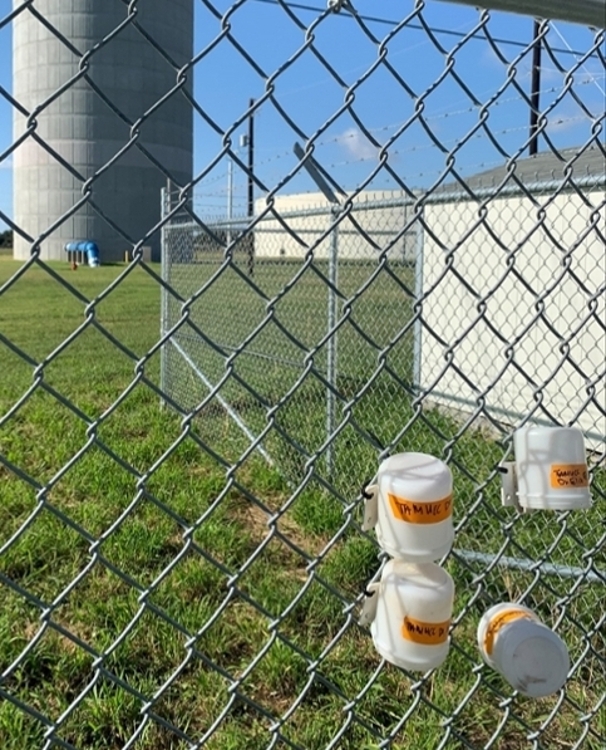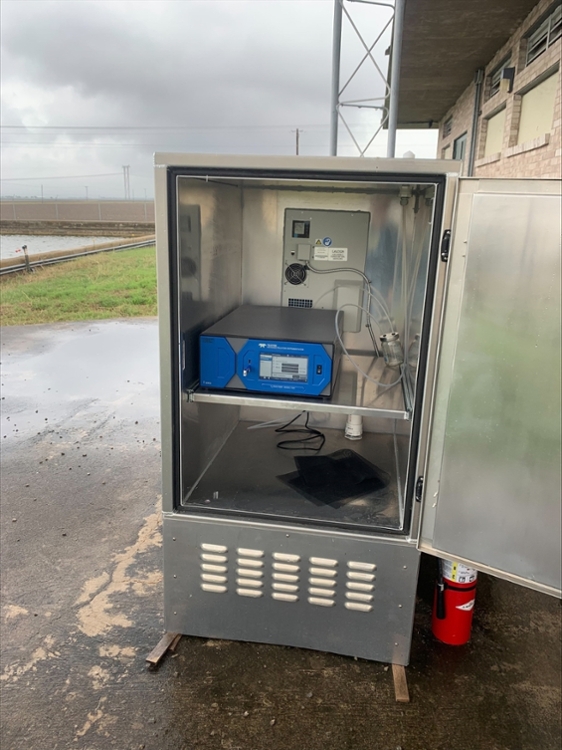Student Highlights/Achievements
2023-2024 TAMUCC LSAMP Student Highlights
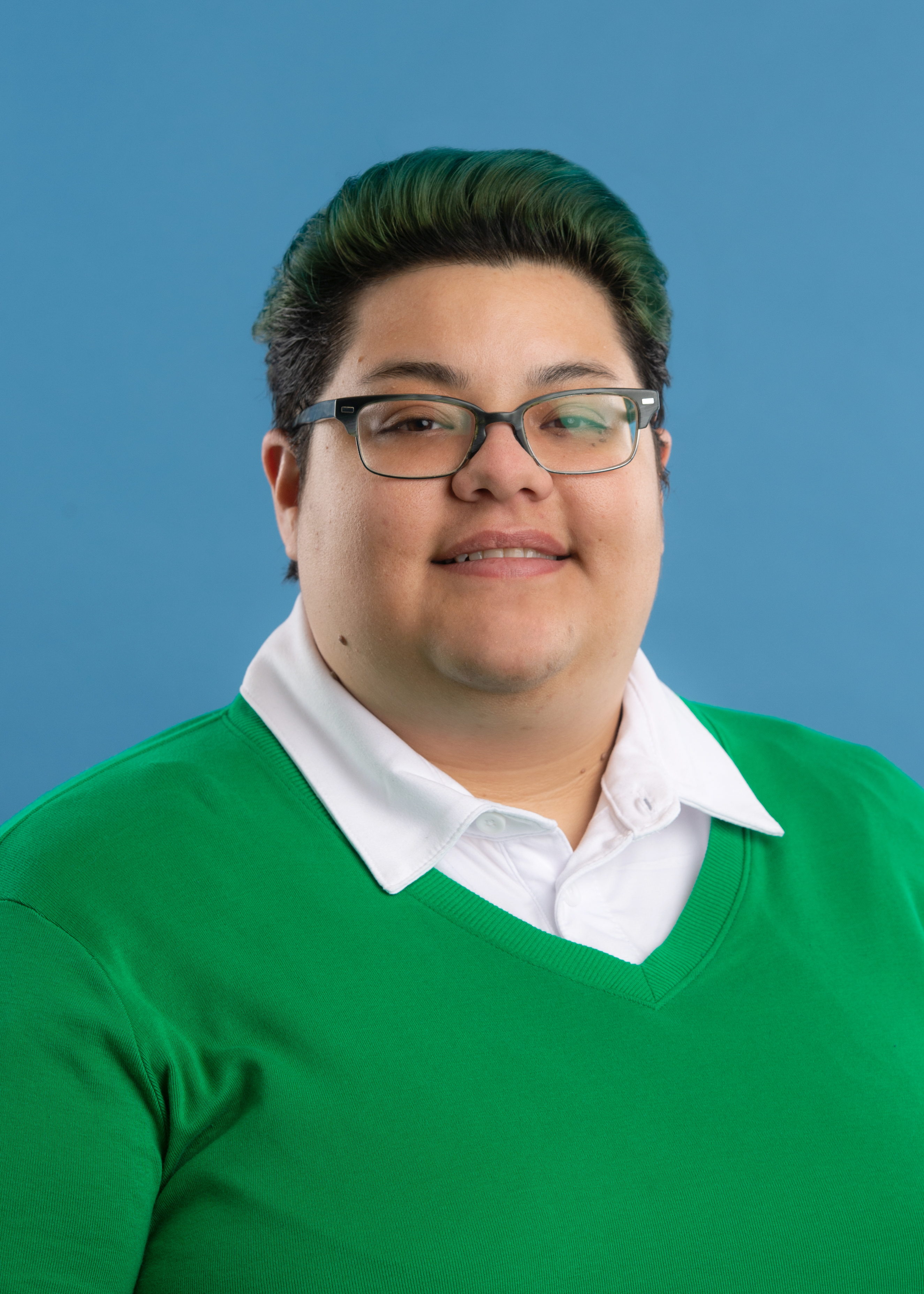
Emily Brennan was a TAMU-CC LSAMP undergraduate research scholar who graduated in Fall 2023 with a B.S. in Mathematics. Emily Brennan's academic journey is characterized by a commitment to rigorous research and a passion for mathematical analysis. Graduating with honors and a Bachelor of Mathematics from Texas A&M University-Corpus Christi, Emily distinguished herself as a meticulous researcher with a keen focus on environmental variables sourced from the Gulf of Mexico Coastal Ocean Observing System. Her expertise lies in data manipulation, where she adeptly integrates diverse datasets to ensure consistency, accuracy, and practicality. Emily's analytical prowess shines through her development of insightful charts, maps, and visualizations, which unveil compelling patterns and trends across multiple environmental parameters derived from monitoring systems and modeling endeavors. A dedicated participant in the LSAMP Program, Emily honed her skills in R programming and acquired proficiency in various statistical and data science techniques essential for scientific studies. Her research contributions were showcased at SCANCS in Portland, OR, underscoring her dedication to sharing her findings with the broader scientific community. Emily's academic achievements and research acumen position her as a promising mathematician poised to make significant contributions to environmental science and data analytics. With a strong foundation in mathematical analysis and a passion for scientific inquiry, Emily is primed to embark on a journey of continued exploration and discovery in her chosen field.
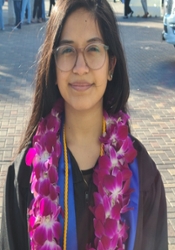
Angelina Garcia was a TAMU-CC LSAMP undergraduate research scholar who graduated with a B.S. degree in Chemistry in Fall 2023. Angelina transitioned seamlessly into the university's chemistry master's program, continuing her exploration of surfactants under the guidance of Dr. Eugene & Fereshteh Billiot. Her research focuses on the synthesis, purification, and characterization of novel bifurcated amino acid-based surfactants, with an eye towards their diverse applications ranging from environmental cleanup to drug delivery. Angelina's academic journey has been marked by active participation in research, presenting her findings at renowned conferences such as SACNAS and the American Chemical Society Conference. With a commitment to community engagement and a passion for advancing scientific knowledge, Angelina aims to continue her education in a professional school while contributing to the betterment of society through her research endeavors.
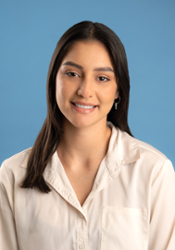
Xitlali Gallegos-Cruz was a TAMU-CC LSAMP undergraduate research scholar who graduated with a B.S. degree in Chemistry in Fall 2023. Xitlali is a dedicated researcher with a keen focus on amino acid surfactants and their potential environmental applications. Her research delves into the properties of these surfactants, emphasizing their environmentally safe composition and the possibility of replacing harmful alternatives. With a background in the Welch Foundation Research Program, LSAMP Scholars, and the McNair Scholars Program, Xitlali presented her findings at prestigious conferences, including the Texas A&M Corpus Christi Research Symposium and the American Chemical Society Conference. As a first-generation Hispanic woman, Xitlali sees her journey in academia as an opportunity to inspire others from similar backgrounds. Balancing academic pursuits with familial and work responsibilities, she aims to demonstrate that overcoming challenges is possible, serving as a beacon of inspiration for aspiring Latinas in STEM fields. Through her dedication, Xitlali aspires to not only obtain her master's degree but also contribute to the increasing representation of Latinas in higher education and STEM careers.
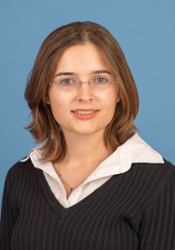
Kyra Kaiser was a TAMU-CC LSAMP undergraduate research student, who graduated in Fall 2023 with a B.S. degree in Biomedical Sciences (4.0 GPA). Kyra exemplifies excellence in academia and research, having graduated with distinction from Texas A&M University-Corpus Christi with a perfect 4.0 GPA in Biomedical Sciences. Currently pursuing her Master of Science degree in Chemistry at TAMU-CC, Kyra remains dedicated to her research endeavors in the realm of public health. Her work focuses on developing bioanalytical methods aimed at assessing the quality control and assurance of medical products, particularly antimicrobial wound dressings. Moreover, Kyra investigates the interactions of these products with human red blood cells in simulated wound environments, contributing valuable insights to the field. Her research prowess is evident through the publication of two peer-reviewed manuscripts in prestigious journals, where she served as both a first author and co-author, showcasing her depth of expertise. Kyra's scholarly achievements extend beyond the realm of research, as she has garnered recognition through various accolades, including the TAMUS LSAMP Program, Welch Chemistry Scholarship and the Student Research Competition Award at TAMU-CC. Additionally, she has presented her findings at esteemed conferences like the Gulf Coast Undergraduate Research Symposium at Rice University, further solidifying her standing as a promising young scientist. Beyond her academic pursuits, Kyra dedicates her spare time to community outreach, volunteering to develop and implement hands-on activities for both local youth and incoming college students at TAMU-CC. Looking ahead, Kyra harbors aspirations of attending medical school and ultimately becoming a physician, driven by her passion for serving others and making a tangible difference in healthcare. In her leisure moments, she indulges in hobbies such as plant collecting and drawing, reflecting her multifaceted interests and creativity outside of academia.
2022-2023 TAMUCC LSAMP Student Highlights

Emily Cano was a TAMU-CC LSAMP undergraduate research scholar who graduated in Spring 2023 with honors with a Bachelor of Science in Marine Biology and a minor concentration in Environmental Science (3.97 GPA). Emily is also a NOAA Center for Coastal and Marine Ecosystems' scholar. Emily’s research focused on an unusual dolphin behavior observed in Port Aransas — orienting against the current — and explored if the behavior could be a novel foraging tactic for dolphins. Emily will be a co-author on a peer-reviewed journal article on the topic and has presented her research at four conferences (SACNAS, TSM, SEAMAMMS, and TAMU-PATHWAYS).
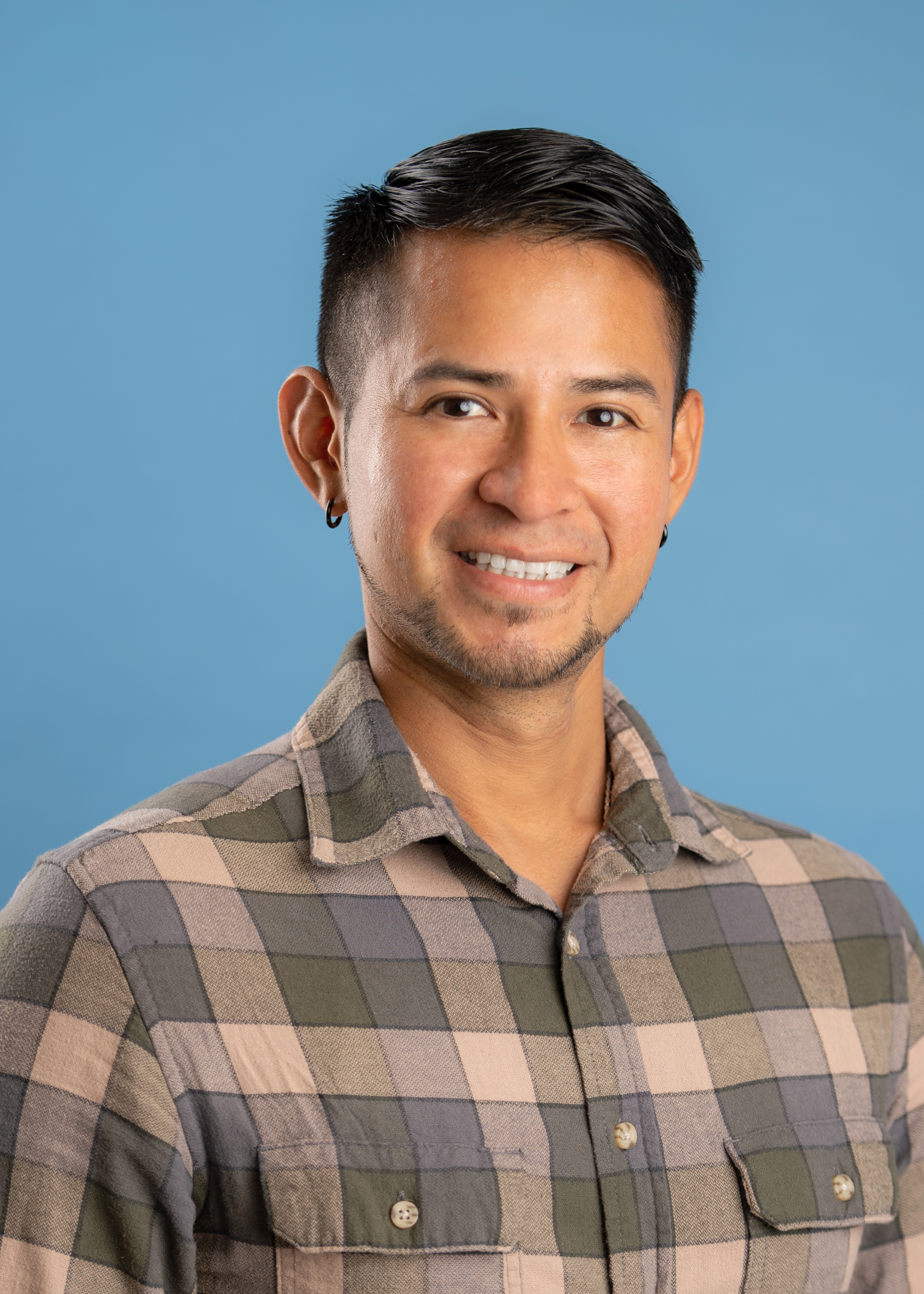
Ignacio Rueda is an undergraduate of TAMU-CC LSAMP program. Ignacio has completed numerous research opportunities outside the classroom. In Spring 2022, Ignacio took part in an NSF-funded research vessel aboard the RV Langseth to collect multichannel seismic data and gain a broader understanding of oceanographic systems. In addition, Ignacio also had the opportunity to conduct research in an NSF-funded LSAMP program in Belize aimed at exposing students to in-depth scientific real-world research of the Mesoamerican coral reef ecosystems in southern Belize, from ridges to reefs. Recently, Ignacio also conducted a month-long research opportunity at the Hawai’i Institute of Marine Biology to conduct ocean acidification experimentation of corals within Oahu. Since finishing these research ventures, Ignacio has disseminated the findings in Belize at two conferences, the Society for the Advancement of Chicanos/Hispanics and Native Americans in Science (SACNAS) and the National Organization for the Professional Advancement of Black Chemists and Chemical Engineers (NOBCChE). He will be giving an oral presentation on the research results conducted at HIMB in early Spring 2023 at the American Association for the Advancement of Science (AAAS) Emerging Researchers National (ERN) Conference. He looks to continue advancing in his academic career and communicating about coral reef ecology with the public.
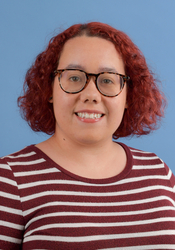
Faith Beall was a TAMU-CC LSAMP undergraduate research scholar who graduated in Fall 2022 with a Bachelor of Science in Physics under the Texas Physics Consortium’s Joint Bachelor of Science program. Faith’s research built a CosmicWatch muon detector and used it to observe cosmic ray generated muons. In Fall 2022, Faith presented her work at the Fall meeting of the Texas Section of the American Physical Society and at the SACNAS conference in Puerto Rico. Faith is currently working in an internship at Fermilab under the SULI program, and plans to pursue a Ph.D. in physics afterward. During this project, Faith had to learn the theory behind cosmic ray generated muons and how a silicon photomultiplier works, electronics parts sourcing and fabrication, including surface-mount soldering, troubleshooting with a digital oscilloscope, and some C++ programming for the Arduino microcontroller at the center of the project. The result is two portable USB-powered working CosmicWatch muon detectors, which can be used independently or together for coincidence measurements for directional sensitivity. More recently, we made a new measurement with the CosmicWatch detector, gathering data to observe the lifetime of slow muons. This comes from a somewhat rare event where a cosmic muon collides inside the detector and slows to non-relativistic speed. At that point, the muon’s 2.2 microsecond lifetime is measured the same by the muon and in the lab, so the muon decays while still in the detector. This is observed as a double peak in the detector signal. Using a digital oscilloscope to gather data (instead of the Arduino), we began gathering data to demonstrate that this is indeed what is being measured.
Research from one of our alumni LSAMP scholars: Gabriella Herrera
Dr. Keisha Bahr and Gabriella Herrera at the Texas State Aquarium.
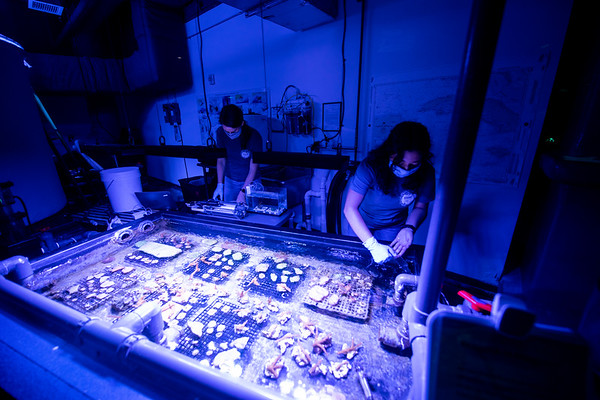
Kimberly Lopez shows Salena Thornton how to run a calibration trial on Vicon Nexus. Once finished with the calibration trial, they are able to set up a skeleton model on Nexus and download data onto MATLAB to measure forces and angles.
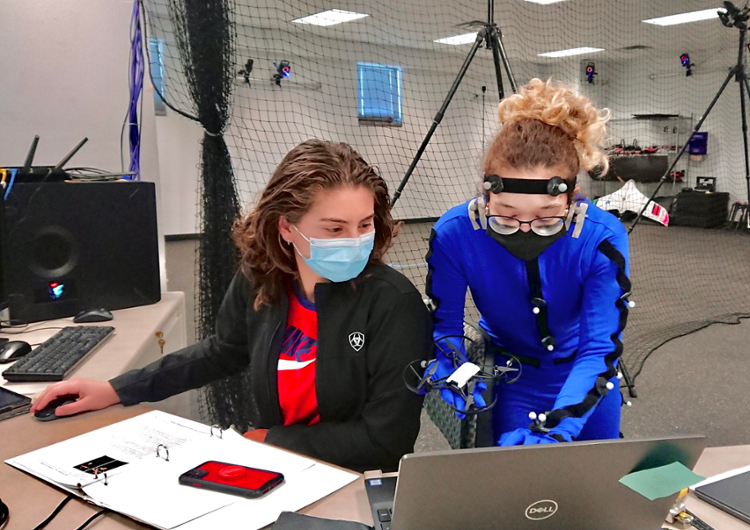
Dr. Sparks and Cher Sintos worked on research in their lab.
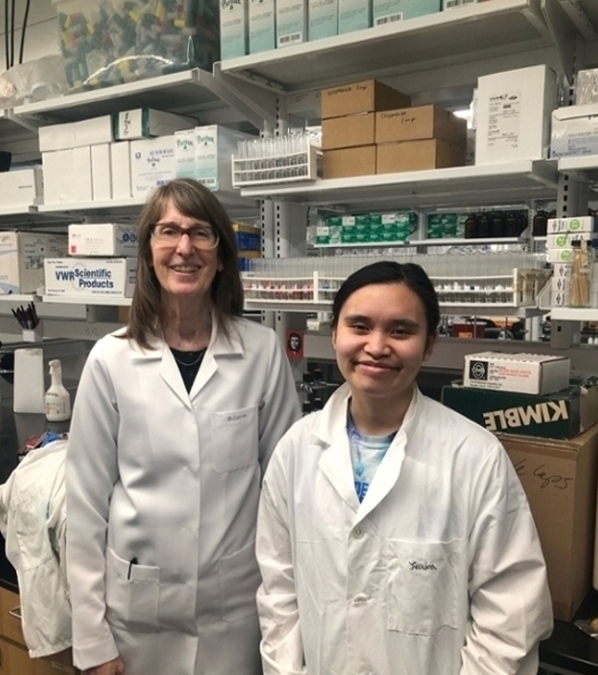
Research from one of our alumni LSAMP Scholars: Kaiya Shealy
